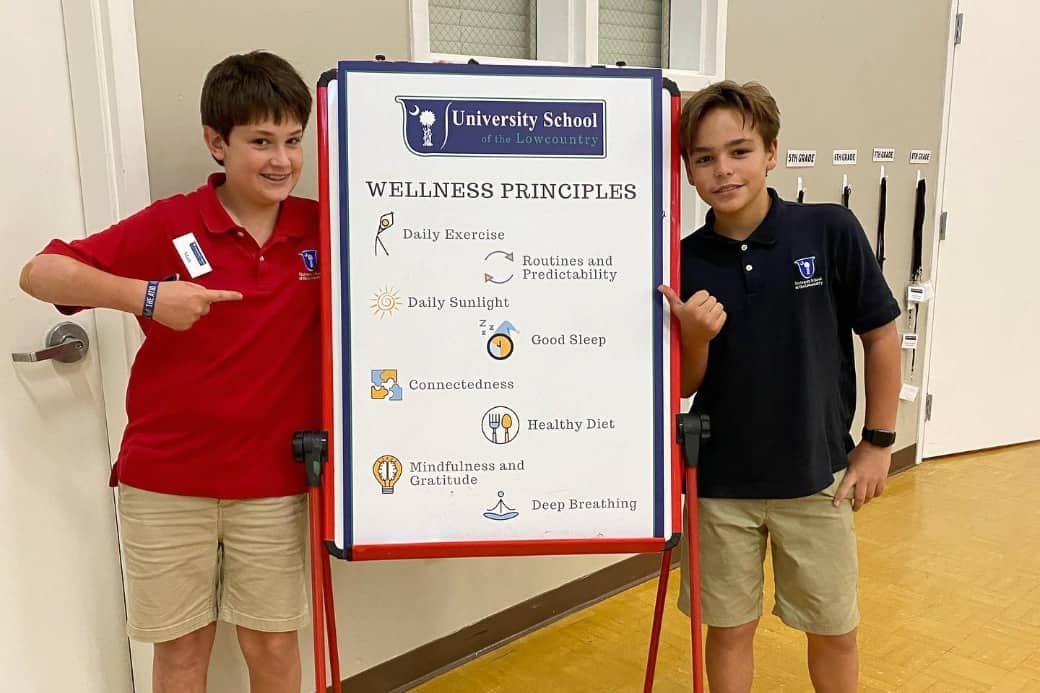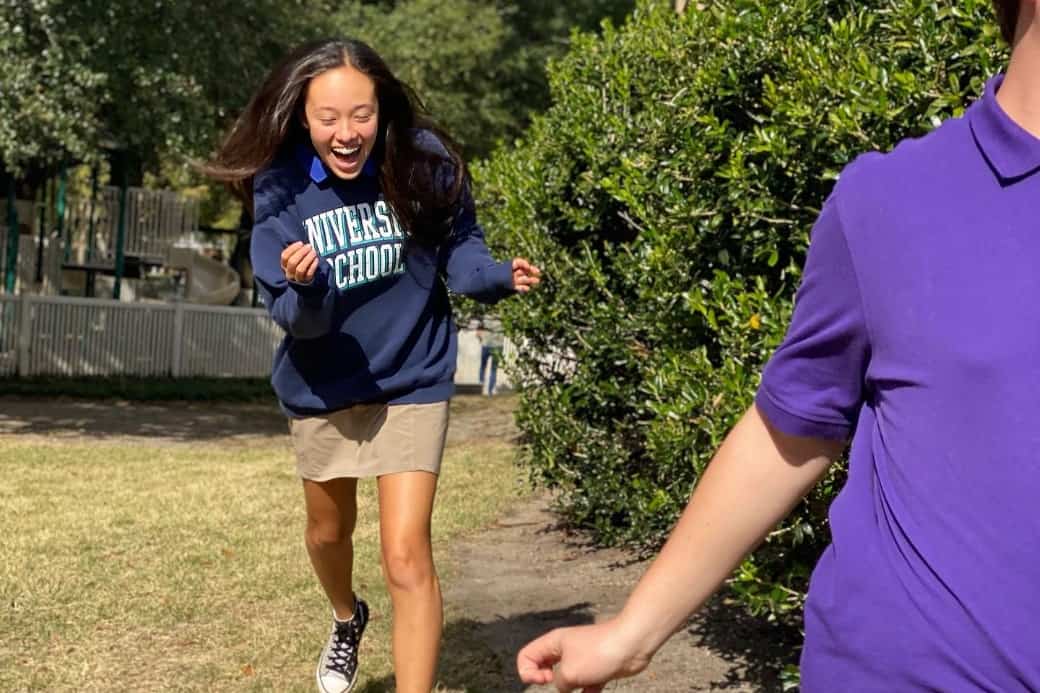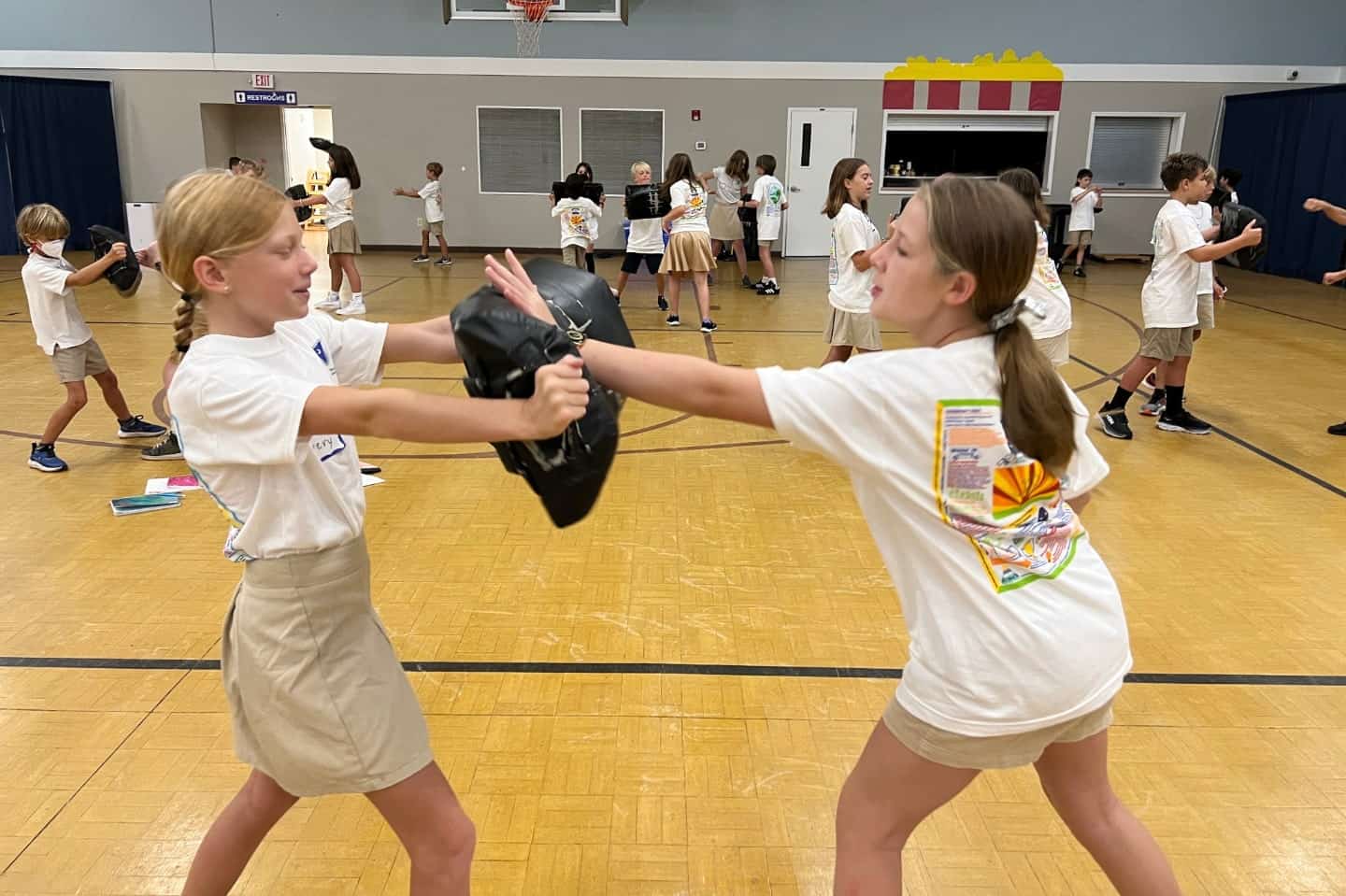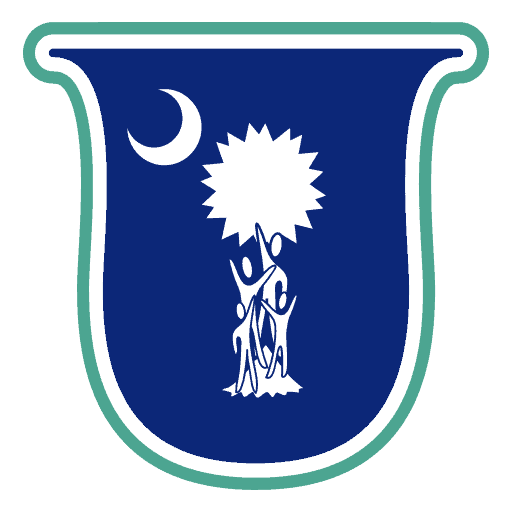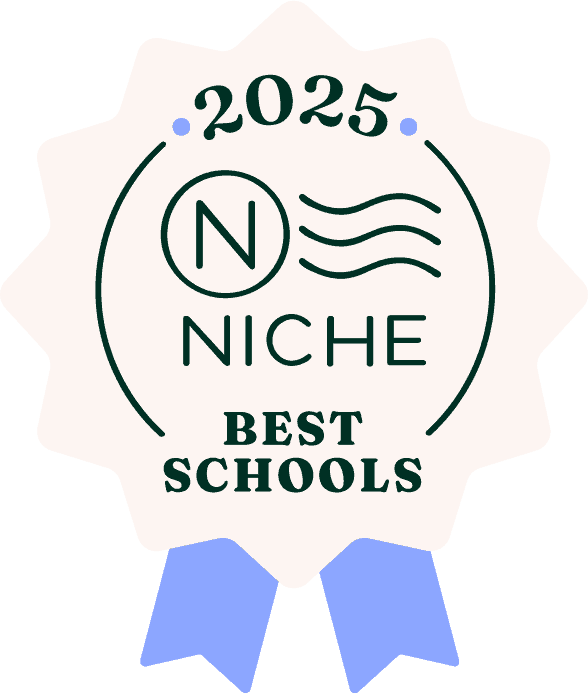Well-Beyond Being Academics
Our Student Wellness program has grown and evolved since the school’s founding in 2007.
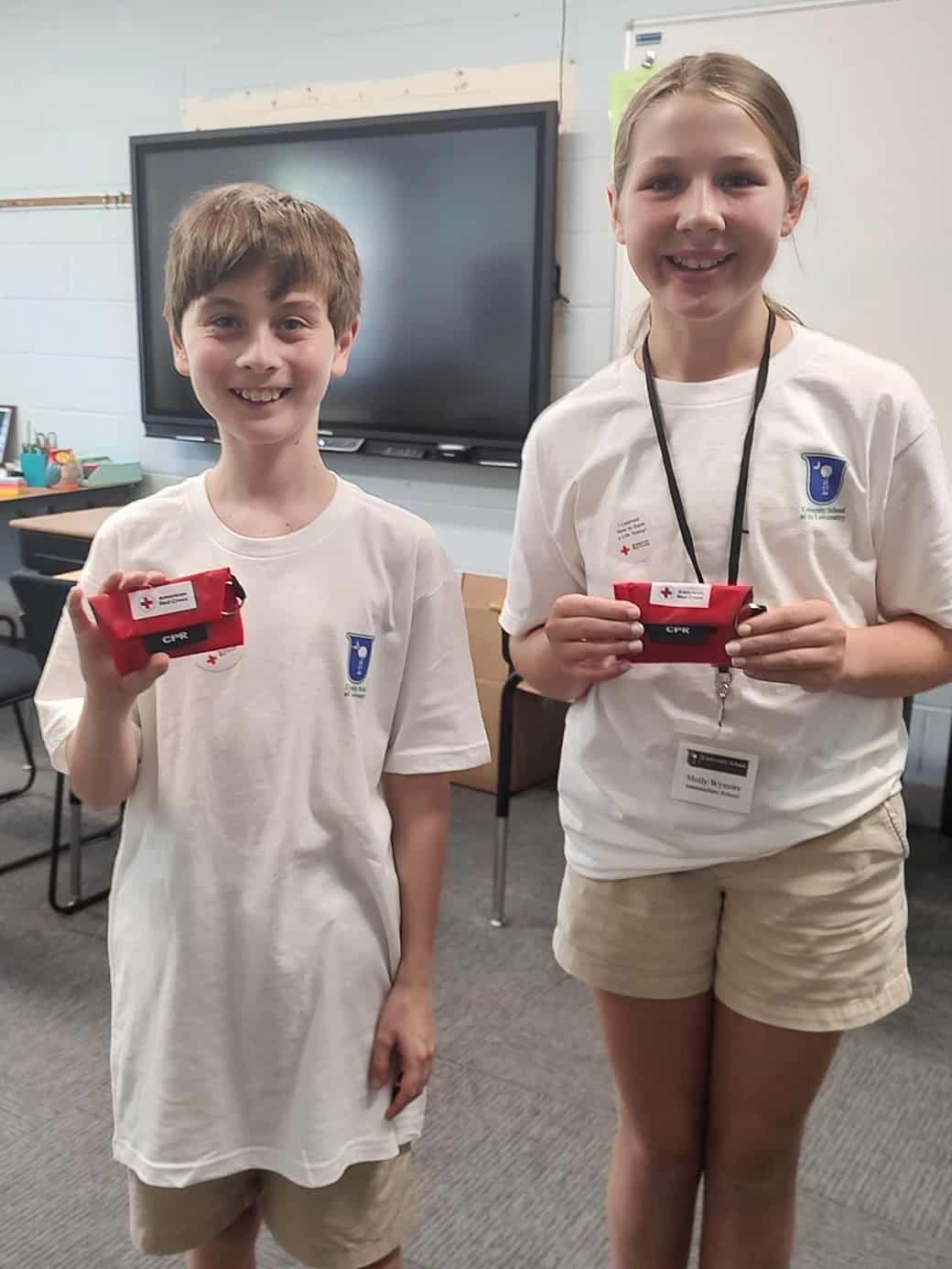
Daily PE
From the beginning, we have structured our days to begin with PE for every student in either their first or second period of the day. This is based on the principles set forth in Dr. John Ratey’s work, Spark: The Revolutionary New Science of Exercise and the Brain. Ratey offers research that students learn best by beginning the day with vigorous exercise. The students are familiar with the research and know the daily habit of moving their bodies will lead to happy and healthy brains.
Personal Safety Skills/Self Defense
As part of our preparations to leave campus on our many LOTCs, students of all ages begin the school year learning basic self-defense skills in the form of Krav Maga. Our students feel confident and skilled when they are leaving campus. Krav Maga gives them the skills and know-how to venture into the world. We revisit and refresh our skills again in January upon return from break.
Red Cross
Our middle and upper school students are all certified in Red Cross First Aid, AED, and CPR. Our students know that repeated learning and practice instill confidence to act in a medical emergency. We want to develop citizens who are active and engaged in their community and are willing to help and/or initiate the chain of response in an accident or emergency. Students and faculty/staff take the full course every August under the supervision of our Red Cross instructors on campus, and students have refresher sessions every January.
Wellness Principles
Throughout our week, we look to our University School Wellness Principles to guide our actions. Our wellness principles are:
- Daily Exercise
- Routines and Predictability
- Daily Sunlight
- Good Sleep
- Connectedness
- Healthy Diet
- Mindfulness and Gratitude
- Deep Breathing
Skill Wheels
Another aspect of Student Development is nurturing the ability to reflect upon and take ownership of learning. As part of quarterly evaluations, students receive their Skill Wheel. Skill Wheels provide feedback on the self-leadership skills we value as part of University School culture. Each quarter, students work to complete a Skill Wheel Reflection. Based on the feedback provided by their teachers, students reflect on what they are doing well, and areas that are challenging. Some feedback areas on the skill wheel include: being organized and prepared for class, exhibiting determination and accepting challenges, and providing a high-quality example for others. After analyzing their strengths and opportunities for growth, students set goals for themselves for the upcoming quarter. This often means students discuss their findings with their mentor students or advisory group and make a plan to improve. Getting away from only being assessed with a number grade leads our students to be more responsible for their behaviors, their choices, and ultimately responsible for their own learning.
Darkness to Light
Each year we partner with Darkness to Light in an effort to honor our commitment to the prevention of child sexual abuse and to helping children grow up healthy and whole. All University School faculty is trained in Darkness to Light’s Stewards of Children program every August, and all parent volunteers for overnight trips take the same program and have their backgrounds checked. At the High School level, our oldest students have the opportunity to take the Darkness to Light Training.
MUSC Health Symposium
Every spring, we partner with local doctors and clinicians from MUSC for a Health Symposium. Our colleagues lead human growth and development classes tailored to the needs and development of our students at age-appropriate levels. This yearly event allows our students to continually learn about healthy habits and the changes they can expect as they mature.
Linking students’ well-being to their academic performance
